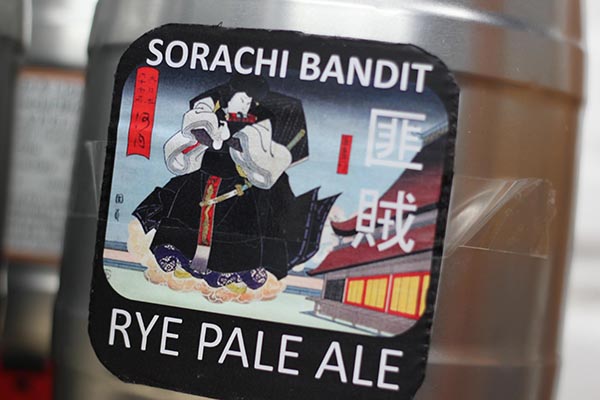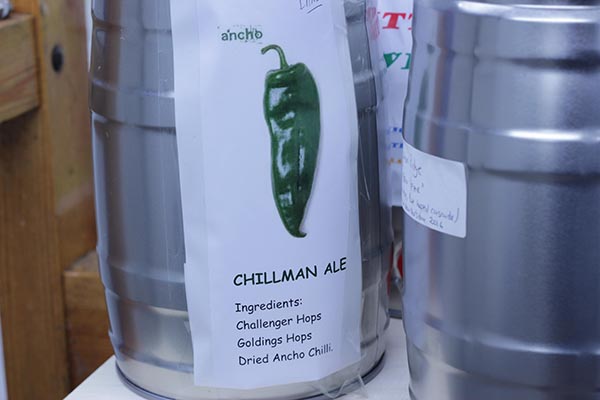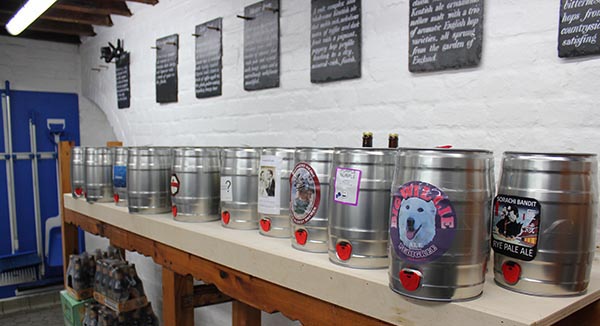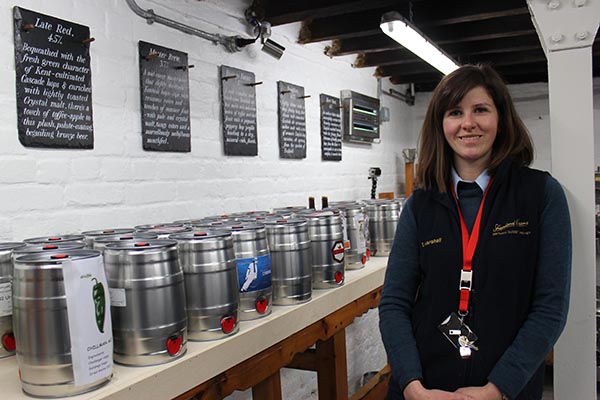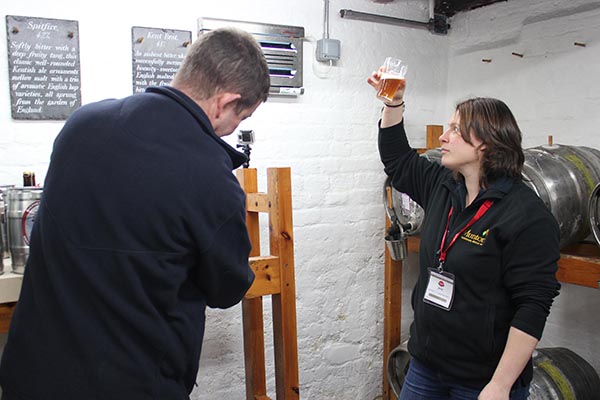Inaugural Sheps Brew Challenge
Author: John Humphreys
Everyone at the brewery has been given an opportunity to make their own homebrew kit, with a brief to make whatever beer they want for an inter-brewery competition.
Richard’s face contorts. His mouth droops to the left, he sticks out his tongue and he winces. “Oh, that’s really quite bizarre.” I think I need to hone my brew skills.
We’re standing in the brewery’s Sample Cellar, surrounded by its usual inhabitants: casks of every beer we’ve brewed over the last month or so. The brew team visit every morning to track the flavour of each of our beers; monitoring any variation from the flavour maps produced for each recipe. However, today’s beers are venturing into unchartered territory.
There are benches heaving with minikegs, rather than our traditional casks. Each minikeg is adorned with a homemade label – which are less ‘eye-catching branding’ and more Blue Peter gone wrong.
Shortly before Christmas everyone who works in the brewery was invited to collect a homebrew kit and spend a few hours devising and brewing any beer of their choosing.The traditional ingredients were all supplied: malt, a choice of hops, yeast etc. However, we were encouraged to experiment with whichever additions we fancied, coloured malts, essences, raw ingredients. And experiment we did. The array of ingredients used would raise an eyebrow from even the most experimental of brewers: salted caramel, whiskey, Toblerone, Chocolate Orange, coconut, lemongrass, rose water, ginger, rhubarb, wheat, rye, Japanese hops, lemon sherberts, Cherry Coke, blackcurrant cordial, peanut butter, tropical fruit juice, spearmint, ginseng and galangal (-no, me neither…)
The purpose of the competition was to increase people’s appreciation and understanding of brewing. Beer’s an easy thing to get excited about and interested in. Most new recruits into the industry will spend the first few months being a beer bore to their families as they relay the facts and myths about beer at the end of each working day. It’s also a hugely convivial drink, both in its brewing and, of course, in the enjoyment of it.
I shan’t spoil the outcome of the competition in this blog post, you can see who won in this short film. But what did I learn, as a complete novice? Firstly, that cleanliness is as big a part of brewing as an understanding of the ingredients and processes. More than 30 beers were produced, with three completely spoilt and suspicious off flavours (apples and marzipan, in case you’re wondering) detected in another four.
My second major learning relates to the importance of the individual in the process. There’s always a chance for a brew to waiver from a set path, whether through human error (don’t ask!), a change in the atmospherics or intensity of ingredients. There is an age-old debate in brewing as to whether it’s a science or an art. Certainly it’s vital to be in control of the process, from cleaning, through to brewing times and temperatures. However, you also need a sense of whether you’re on the right track. We had to rely on our instincts and our senses. For all the expensive monitoring equipment in our main Brewhouse, we will always ultimately rely on the senses of our brewing team. So it was with our homebrews.
For me, I was pleased and disappointed in equal measure. I brewed a Rye Pale Ale, with a fairly unusual hop variety. My mistakes were clear when tasting it: you could taste the priming sugar (which is used to carbonate the beer), the hops were under-boiled – so lacked bitterness, it wasn’t clear. However, I was pleased with the aroma, it was definitely a ‘beer’ (compared to the ‘weird sugar water’ a colleague claimed to have brewed) and most of the judges thought it drinkable (except, perhaps to poor Richard’s palate).After the judging, when we had a chance to try all the beers, there was endless talk of whether people had put too much or too little of an ingredient in, or whether they stopped fermentation too early, or been affected by a myriad of other variables. Resoundingly though, the feeling in the room was firstly, it had been enjoyable and, secondly, that people wanted to do it again. That sounds like a success to me.
John Humphreys, Communications Manager.
You can view a short video, including the winner announcement, on our YouTube channel https://youtu.be/E0NaUhxiveY.
